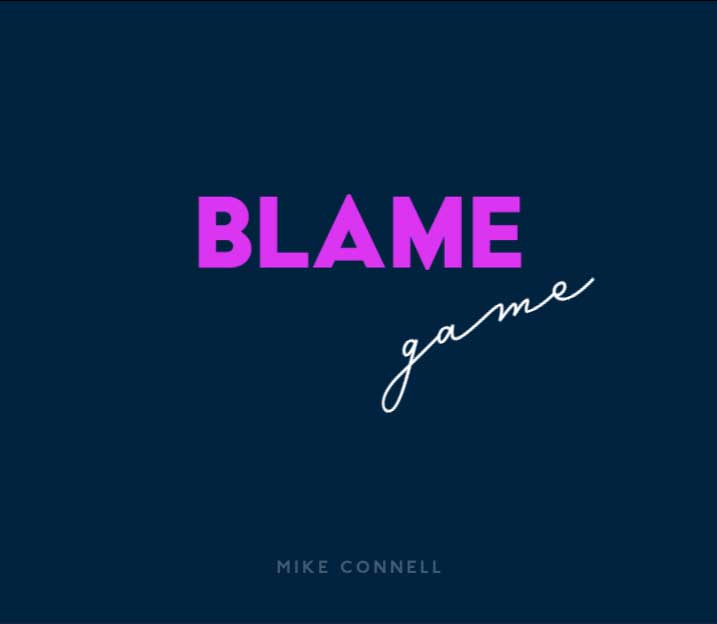 "It's not my fault, you can't blame me for that". If we don't relentlessly deal with the Blame Game, then we think we're trying to move in faith, but we're actually continuing old patterns of unbelief and irresponsibility. The Blame Game started in Genesis, when God talked to Adam & Eve about eating the fruit of the tree. When they started blaming, God stopped talking - they experienced the consequences of their decision. Will you stop blaming and start to take responsibility? Find creative options. Take action. Jesus took responsibility for the sins of the world, offering hope and a different future.
"It's not my fault, you can't blame me for that". If we don't relentlessly deal with the Blame Game, then we think we're trying to move in faith, but we're actually continuing old patterns of unbelief and irresponsibility. The Blame Game started in Genesis, when God talked to Adam & Eve about eating the fruit of the tree. When they started blaming, God stopped talking - they experienced the consequences of their decision. Will you stop blaming and start to take responsibility? Find creative options. Take action. Jesus took responsibility for the sins of the world, offering hope and a different future.
[13:35] I want to just start on another short series. This year we're looking at what it means to be apostolic, but what I want to do at this point is I want to just address an issue, which is a big one in New Zealand, called the Blame Game, the Blame Game. I'm sure you have played it. It goes like this: it's not my fault. You can't blame me for that, it's not my fault. We have a culture you know, we live in a culture, which is a culture of blame. When you live in a culture of blame, you start to think and act and behave and do what everyone else does, so when there's a culture which one of the aspects of culture is people blame one another, we then turn to get in, buy in and do the same kind of thing. So when people blame someone else, they kind of feel a bit better; oh not my fault, it's you, it's what you did. The problem is that, when you blame someone else, you remain powerless to change your situation; and God is wanting us to become empowered as people and believers.
If you're going to be empowered as a believer, and begin to move in dimensions of faith, you have to be relentless in addressing any habits you have of passing the buck, or blaming someone else. To walk in faith will require that we take responsibility, so I want to push in on this area of the blame game, so we begin to understand what it looks like, sounds like, so that we can deal with it. There was an interesting thing in the United States recently. Two very overweight women sued McDonalds. [Laughter] They sued McDonalds, for not warning them of the dangers of their food causing them to put on weight, and creating physically attractive and psychologically addictive food; so their condition of being overweight was McDonald's fault. Fortunately the judge saw through that, and threw the case out, but what on earth is going through people's minds, that they think you can blame someone else for their weight? It's about a way of thinking, a blaming way of thinking.
As we open this up over a couple of weeks, you're going to start to find it everywhere. It comes up in such subtle ways but the core of it is something like this; instead of taking ownership of the problem, and doing something about it; people blame someone else, or something else, see? The reason I'm not married, is there's not enough Christian men in the church. Oh, what did they just blame? Just blamed the church. Oh too bad, you'll stay single the rest of your life then, because you've assigned responsibility outside yourself. You've put the blame for your single condition outside yourself, somewhere else. Whoa, that was a bit close. I shouldn't have started that deep so quick should I aye? [Laughter] That's a bit nasty wasn't it aye? [Laughs] Oh well. Got really difficult times financially you know, the nation's going through a bad time. Blame! Is God my source or not? Where am I putting the blame? Where I put the blame, is where I put the responsibility; and when I put the responsibility out there, I'm left unable to do anything except be powerless, resentful and talk negatively about how bad it is.
So if we don't relentlessly deal with the blame game, we will find: on the one hand we think we're trying to move in faith; on the other hand we're actually continuing old patterns of unbelief and irresponsibility. It's everywhere. It is everywhere. So normally people blame - so we ask people: well what's your problem? They tell you where the problems are. Well how come they're problems? Oh well it was my father, it was my mother, she abandoned us. Yeah well heaps of mothers have done that, but it doesn't mean to say you end up with a mess. You've got to make a choice how you respond to that bad deal. You have to learn to play the cards you're dealt, not wish you got a different hand. God knows how we're going to come into this world, and knows what we're going to experience, and He's promised to help us, if we will stop blaming, and step up, and begin to think creatively what to do. If we're going to be faith people, we have to think creatively about the problems of life; and I want to get us out of blaming, and into some other kind of thing.